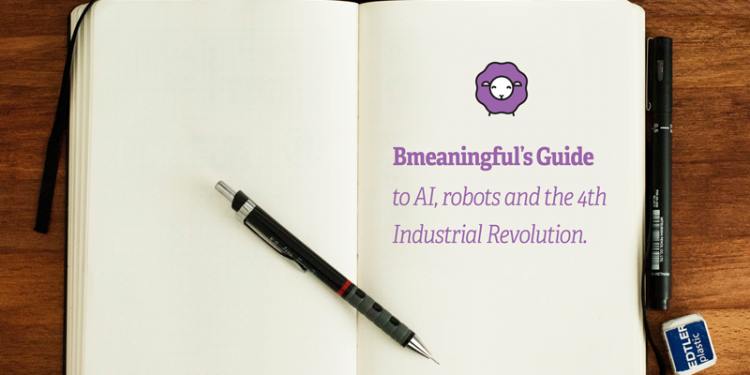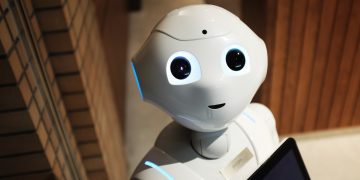Bmeaningful’s guide to AI, Robots and the 4th industrial revolution
A primer on the future of work: AI, robots and the 4th Industrial Revolution.
Did you know…
We’re living through the 4th Industrial Revolution where advancements in artificial intelligence, robotics, internet of things, and other technologies are changing the nature of work.
Have I been alive for other Industrial Revolutions?
The first one took place in the late 1700s-1800s when we shifted from urban to industrial (so no). The second one took place before WW1 when technologies like the telephone, lightbulb and the car were introduced (again-nope, not alive). The third Industrial Revolution started in the 80’s with the transformation to digital, resulting in advancements with computers and the internet (what’s up Millennials! we were coming of age during this era).
Why should I care?
It’s estimated there will be 7.1 million jobs lost globally including highly skilled knowledge workers to robots, sophisticated algorithms or software. Doctors and finance people watch out- we’re already seeing advancements in financial robo-advising and IBM’s Watson cracking medical cases. By 2025 up to 25% of jobs could be replaced.
How can I make sure I don’t get replaced by a robot?
By today’s technology only 5% of jobs could be fully automated but if it’s thought about in terms of tasks, 45% of all activities across all job types could be automated. To thrive in this new time, focus on continuous learning, up-skilling and staying up to date with trends.
What jobs are the least likely to be automated?
Creative jobs that require original and critical thinking and jobs that rely on personal relationships, influencing, problem solving, emotional intelligence and cooperating are believed to be the safest. Managing people and applying expertise are the skills least likely to be automated. As technology advances what machines do better than humans (data processing), the big winners will be those that do what humans do best- being human.
What about new jobs?
A new cadre of jobs will be created at the intersection of machine and human. People have already started coming up with new businesses, products and services to capitalize on the power of AI and as businesses create new products and services, more new jobs will be created.
Could CSR be replaced by a robot?
In the meaningful space sector, where empathy, volunteerism, and caring about people is at the forefront, we can feel confident that our skills will be needed.
Topics of expertise will change.
Expertise in climate change, food sustainability and energy and will grow in importance but there will also be new social issues that arise as a result of these new technologies. From robot sex dolls to gaming addictions, more people are spending time in the digital world – losing the ability to connect in the real world. We don’t know what all the societal implications will be yet, but it’s likely there will be new jobs and organizations set up to deal with these issues.
As a business owner, HR leader or people manager, what does this all mean for me?
Leaders should look to embrace the potential that machines can bring, while staying mindful of the challenges it presents. As machine learning grows, we need to double down on the human side and think about the experiences and feelings of those we seek to serve. In your organization, think of where automation could help raise productivity, improve quality, speed or safety. It’s not only about replacing people, it’s about considering efficiencies technology can unlock. While the future is unknown, one thing is for certain there will be unintended and unexpected consequences and issues to deal with.






No Comment